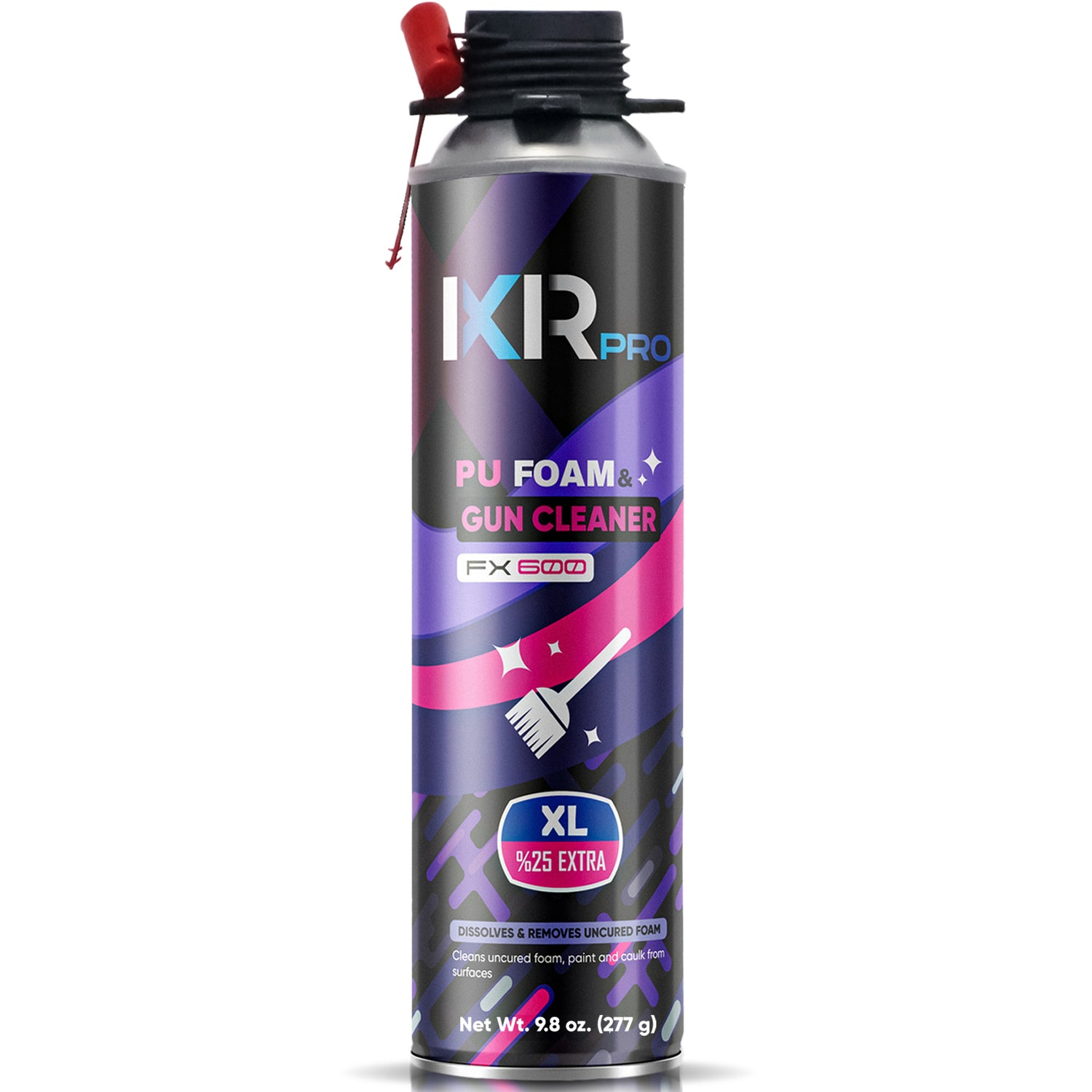Water can be one of the most destructive forces in a building. That’s why when choosing insulation, one of the first questions homeowners and contractors ask is: Is spray foam insulation waterproof?
In this blog post, we’ll dive into the moisture resistance of spray foam insulation kits—especially closed-cell spray foam insulation kits—and clarify what “waterproof” really means. We'll also compare closed-cell vs. open-cell spray foam insulation, review how it performs compared to other materials, and answer the most frequently searched questions about spray foam and water.
What Does “Waterproof” Mean in Insulation?
When people ask if an insulation product is waterproof, they usually mean:
-
Will it absorb water?
-
Will it allow water vapor to pass through?
-
Will it lose its insulating ability if exposed to moisture?
In insulation terms, “waterproof” refers to a material’s ability to block both water and moisture vapor completely. It’s different from water-resistant, which only offers partial protection.
Closed-Cell Spray Foam: The Waterproof Champion
If you're looking for the best waterproof spray foam insulation kit, the answer is simple: closed-cell spray foam insulation offers the highest level of moisture protection.
This type of foam has a dense, rigid structure with completely sealed air pockets. That means:
-
Water can't penetrate it
-
It acts as an air barrier and vapor barrier
-
It maintains a high R-value even in humid or wet environments
It’s especially ideal for basements, crawl spaces, and exterior walls—places where moisture is a constant threat.
Open-Cell Spray Foam: Not Waterproof
In contrast, open-cell spray foam has a softer, sponge-like texture with open pockets that allow air and moisture to move through.
It may work well for soundproofing or interior walls, but it’s not recommended for areas exposed to moisture. If water gets into open-cell foam, it can stay trapped, leading to:
-
Mold growth
-
Rotting structures
-
Lost insulation performance
Comparing Insulation Materials: Which Is Most Waterproof?
| Insulation Type | Waterproof? | R-Value (per inch) | Vapor Permeance | Best Use Case |
|---|---|---|---|---|
| Closed-Cell Spray Foam | ✅ Yes | 6.0 - 7.0 | <1 perm (Class II) | Basements, roofs, foundations |
| Open-Cell Spray Foam | ❌ No | 3.5 - 4.0 | 10–16+ perms (permeable) | Interior walls, soundproofing |
| Fiberglass Insulation | ❌ No | 3.0 - 4.0 | Very high (>40) | Dry interior spaces (requires vapor barrier) |
| Rigid Foam (XPS or Polyiso) | ✅ Limited | 5.0 - 6.0 | 1 to <0.1 perm | Exterior sheathing, below-grade areas |
Does Spray Foam Stop Water Leaks?
Closed-cell spray foam insulation kits are commonly used as part of a moisture management strategy in homes. While they don't "fix" leaks, they form a solid barrier that prevents water intrusion in critical areas like:
-
Rim joists
-
Basement walls
-
Roof decks
-
Crawl spaces
The foam expands into cracks and gaps, sealing air leaks and stopping most minor water infiltration.
Can Spray Foam Get Wet?
If closed-cell spray foam gets wet, it won't absorb water, and it usually dries without losing its insulating performance.
But it’s important to:
-
Identify the source of the water
-
Fix leaks quickly
-
Keep UV exposure and physical damage to a minimum to maintain performance
Open-cell spray foam, on the other hand, can absorb and trap water—leading to mold and structural issues.
Where Should You Use Waterproof Spray Foam Insulation Kits?
Here are the best areas to apply closed-cell spray foam insulation kits:
-
Basements – Seal out groundwater and wall seepage
-
Crawl Spaces – Protect against humidity and standing water
-
Roofs & Attics – Prevent water and vapor intrusion
-
Exterior Walls – Great for harsh climates with heavy rain or snow
-
Foundations – Ideal for flood-prone or wet regions
What Affects Spray Foam’s Water Resistance?
To get the best water resistance from your spray foam insulation kit, consider these factors:
-
Foam Type: Closed-cell foam is a must for waterproofing
-
Installation Quality: Gaps or thin areas can lead to leaks
-
UV Protection: Exposed foam should be coated to prevent sun damage
-
Damage Protection: Mechanical damage compromises the waterproof seal
FAQs
1. Is spray foam insulation waterproof or water-resistant?
Closed-cell spray foam insulation is both water-resistant and can be considered waterproof when installed properly. Open-cell foam is only suitable for dry conditions.
2. Will spray foam stop water from leaking into my basement?
Yes, closed-cell spray foam kits for basement insulation are a top solution for blocking water. But always repair the root cause of the leak for full protection.
3. Can I use spray foam insulation on exterior walls?
Absolutely. Closed-cell spray foam insulation kits for exterior use provide excellent weather and moisture protection. Just add a UV-resistant coating.
4. What happens if spray foam gets wet?
Closed-cell spray foam insulation doesn’t absorb water, so it generally dries out and maintains its properties. But prolonged water exposure should still be addressed.
5. Does spray foam insulation grow mold?
Closed-cell spray foam helps prevent mold because it creates an airtight, moisture-resistant barrier. Open-cell foam can retain water and may support mold growth if exposed to moisture.
Final Thoughts
When it comes to moisture control and waterproofing, closed-cell spray foam insulation kits are the clear winner. They offer unbeatable protection against water, preserve their R-value even in damp environments, and last for decades when installed correctly.
If you’re looking for a durable, effective solution for water-prone areas like basements, crawl spaces, or exteriors—closed-cell spray foam insulation is the smart choice.


























